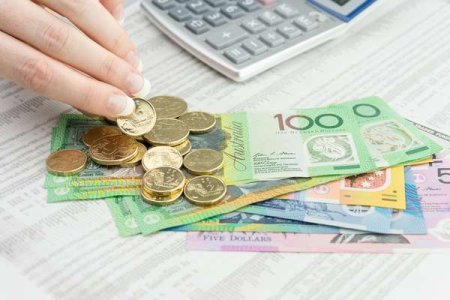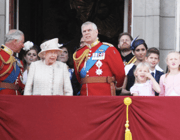Budgeting brilliance: Aussies find ways to save amidst cost-of-living crunch!
- Replies 6
In the face of a relentless cost-of-living crisis, Australians are adopting a savvy approach to their finances, finding innovative ways to save hundreds of dollars each month.
With expenses rising and the economic pinch being felt across the nation, it's more important than ever to be financially astute.
However, how exactly are everyday Aussies achieving these impressive savings? Let's dive into the strategies that are making a real difference to the bottom line.
The key to unlocking these savings lies in the concept of 'smarter spending'.
According to recent consumer sentiment data from the National Australia Bank (NAB), a significant number of Australians are tightening their belts, particularly when it comes to discretionary spending.

Dining out, that daily coffee fix, and indulgent snacks are on the chopping block, with half of the population spending less in these areas.
Entertainment expenses haven't escaped scrutiny, either, with 49 per cent of people cutting back on activities that once were routine.
The high cost of petrol prompted 46 per cent of Australians to reduce their car journeys, opting for public transport, carpooling, or simply staying local.
Additionally, 45 per cent are forgoing holiday plans, while 43 percent are skipping food delivery services, all to conserve cash.
These strategic cutbacks are not just for show; they translate into real savings.
NAB reported that individuals practicing these frugal habits are saving an average of $320 a month, which adds up to a substantial $3,800 a year.
The NAB's consumer stress index highlighted that cost-of-living concerns have remained a top stressor for the third consecutive quarter.
Interestingly, worries over job security, health, government policy, and retirement funding have lessened since late 2022, suggesting that Australians are feeling more confident in these areas, but still grapple with daily financial pressures.
Inflation, sitting steady at 3.4 per cent as of February, continues to be a thorn in the side of consumers, with the Reserve Bank of Australia not expecting a return to the target range of two to three per cent until 2025.
This prolonged period of high inflation is squeezing households, with comparison site Finder reporting that 78 per cent of Australians—from 83 per cent last year—are experiencing 'extreme' cost-of-living pressure.
It's worth mentioning that in March 2021, that number stood at just 47 percent.
While over three quarters of Australians expressed ‘extremely or somewhat’ stress regarding their finances, 38 per cent of homeowners experienced challenges in managing their mortgage payments, and 44 per cent of renters faced difficulties meeting their rental obligations.
Over the last couple of years, housing expenses surged by 22 per cent, while food and groceries, as well as electricity costs, increased by 17 per cent, as indicated by a recent Anglicare Australia study.
Rachel Slade, the NAB Personal Banking Group Executive, noted that Australians are refining their spending habits to effectively handle living costs and maintain budgetary discipline.
According to NAB's survey of over 2000 Australians, 40 per cent are allocating additional funds to savings and offset accounts, while one-fifth are focusing on reducing debt.
Another study by YouGov also reported that a significant number of Australian seniors are affected by the current cost-of-living crisis.
 Have you adopted any of these cost-saving measures? What tips and tricks have you found most effective in managing your budget amid the cost-of-living crisis? Share your stories and advice in the comments below.
Have you adopted any of these cost-saving measures? What tips and tricks have you found most effective in managing your budget amid the cost-of-living crisis? Share your stories and advice in the comments below.
With expenses rising and the economic pinch being felt across the nation, it's more important than ever to be financially astute.
However, how exactly are everyday Aussies achieving these impressive savings? Let's dive into the strategies that are making a real difference to the bottom line.
The key to unlocking these savings lies in the concept of 'smarter spending'.
According to recent consumer sentiment data from the National Australia Bank (NAB), a significant number of Australians are tightening their belts, particularly when it comes to discretionary spending.

Australians are using the concept of ‘smarter spending’ to cope with the current cost-of-living crisis. Credits: Shutterstock
Dining out, that daily coffee fix, and indulgent snacks are on the chopping block, with half of the population spending less in these areas.
Entertainment expenses haven't escaped scrutiny, either, with 49 per cent of people cutting back on activities that once were routine.
The high cost of petrol prompted 46 per cent of Australians to reduce their car journeys, opting for public transport, carpooling, or simply staying local.
Additionally, 45 per cent are forgoing holiday plans, while 43 percent are skipping food delivery services, all to conserve cash.
These strategic cutbacks are not just for show; they translate into real savings.
NAB reported that individuals practicing these frugal habits are saving an average of $320 a month, which adds up to a substantial $3,800 a year.
The NAB's consumer stress index highlighted that cost-of-living concerns have remained a top stressor for the third consecutive quarter.
Interestingly, worries over job security, health, government policy, and retirement funding have lessened since late 2022, suggesting that Australians are feeling more confident in these areas, but still grapple with daily financial pressures.
Inflation, sitting steady at 3.4 per cent as of February, continues to be a thorn in the side of consumers, with the Reserve Bank of Australia not expecting a return to the target range of two to three per cent until 2025.
This prolonged period of high inflation is squeezing households, with comparison site Finder reporting that 78 per cent of Australians—from 83 per cent last year—are experiencing 'extreme' cost-of-living pressure.
It's worth mentioning that in March 2021, that number stood at just 47 percent.
While over three quarters of Australians expressed ‘extremely or somewhat’ stress regarding their finances, 38 per cent of homeowners experienced challenges in managing their mortgage payments, and 44 per cent of renters faced difficulties meeting their rental obligations.
Over the last couple of years, housing expenses surged by 22 per cent, while food and groceries, as well as electricity costs, increased by 17 per cent, as indicated by a recent Anglicare Australia study.
Rachel Slade, the NAB Personal Banking Group Executive, noted that Australians are refining their spending habits to effectively handle living costs and maintain budgetary discipline.
According to NAB's survey of over 2000 Australians, 40 per cent are allocating additional funds to savings and offset accounts, while one-fifth are focusing on reducing debt.
Another study by YouGov also reported that a significant number of Australian seniors are affected by the current cost-of-living crisis.
Key Takeaways
- Australians are saving money by cutting back on non-essential expenses like dining out, entertainment, and travel in response to cost-of-living pressures.
- On average, those making cutbacks are saving around $320 a month, equating to more than $3,800 annually, as reported by NAB.
- The cost-of-living concerns among Australian consumers remain high due to inflation, with the Reserve Bank of Australia not expecting inflation to drop to the target range until 2025.
- Australians are using strategies such as savings and offset accounts, paying down debt, and utilising budgeting apps and real-time notifications to manage their finances more effectively.







